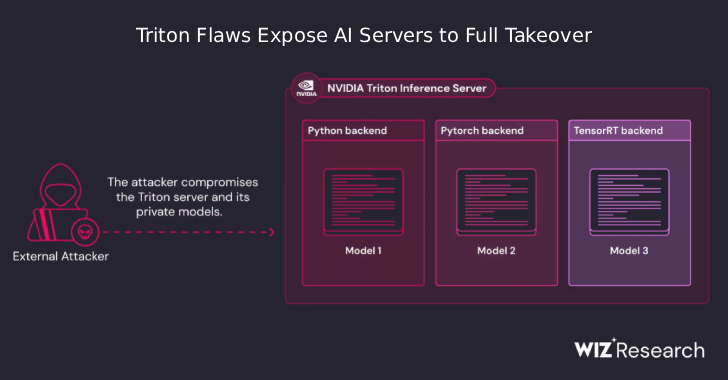
The Benefits of a Disaster Recovery Program
In a world where uncertainty and unpredictability are constants, businesses and organizations must be prepared for the unexpected. Natural disasters, cyberattacks, hardware failures, and other unforeseen events can disrupt operations and lead to substantial financial losses. To mitigate these risks, many businesses have turned to Disaster Recovery Programs. In this article, we will explore the benefits of a disaster recovery program and why it is an essential investment for any organization.
- Business Continuity
One of the most significant benefits of a disaster recovery program is the assurance of business continuity. When a disaster strikes, whether it’s a hurricane, earthquake, or a cyberattack, it can cripple a business’s operations. Without a well-defined recovery plan in place, companies may find themselves unable to serve customers, meet deadlines, or maintain essential functions.
A disaster recovery program ensures that critical systems and data are backed up and can be quickly restored, minimizing downtime. This means that even in the face of a disaster, businesses can continue to operate, serve their customers, and fulfill their obligations. This continuity is invaluable for maintaining a company’s reputation and customer trust.
- Data Protection
Data is the lifeblood of many modern businesses. Customer information, financial records, intellectual property, and other data are essential assets that need protection. A disaster recovery program includes robust data backup and recovery procedures that safeguard critical information.
Regularly backing up data and having redundant storage systems ensures that even if data is lost due to a disaster or a technical failure, it can be recovered. This not only helps in maintaining business continuity but also prevents the loss of valuable information that could be irreplaceable.
- Risk Mitigation
Disasters come in various forms, and while we cannot prevent them entirely, we can mitigate their impact. A disaster recovery program is a proactive approach to risk management. By identifying potential risks and planning for them, organizations can reduce the likelihood of severe disruptions.
This approach extends beyond natural disasters and includes cybersecurity threats. Cyberattacks, such as ransomware, are on the rise and can be devastating to businesses. Disaster recovery programs often include security measures and protocols to protect against such threats and recover data if an attack occurs.
- Compliance and Legal Requirements
Many industries and jurisdictions have specific regulations and legal requirements concerning data protection and disaster recovery. Failing to comply with these regulations can result in severe penalties and legal consequences.
A well-implemented disaster recovery program helps organizations meet these compliance requirements. It ensures that data is stored, secured, and recoverable in accordance with the law. This not only protects the organization from legal issues but also demonstrates a commitment to data privacy and security, which can enhance customer trust.
- Cost Savings
While it may seem counterintuitive, investing in a disaster recovery program can actually lead to cost savings in the long run. When a disaster strikes, the financial losses can be substantial, including lost revenue, customer churn, and the cost of rebuilding damaged systems.
Having a disaster recovery program in place can mitigate these financial impacts. By reducing downtime and data loss, businesses can limit the overall financial damage caused by disasters. Additionally, insurance premiums may be reduced for organizations that can demonstrate robust disaster recovery plans.
- Competitive Advantage
In today’s competitive business landscape, organizations need every advantage they can get. Having a well-publicized disaster recovery program can be a significant selling point and a competitive advantage.
Customers and clients are increasingly aware of the risks associated with data breaches and service interruptions. Knowing that a business has a plan in place to protect their data and ensure continuity can be a deciding factor in choosing one provider over another. It can also give an organization an edge when competing for contracts or partnerships.
- Employee Morale and Retention
Disasters can be emotionally and mentally taxing for employees. When an organization has a disaster recovery program in place, it sends a message to employees that their well-being and job security are priorities. This can boost morale and improve employee retention.
Knowing that their work and contributions are valued, employees are more likely to stay with a company that is prepared for the worst. Conversely, organizations that neglect disaster preparedness may experience higher turnover and a disengaged workforce.
- Reputation Management
In today’s digital age, news of a disaster or data breach can spread rapidly through social media and news outlets. How a company responds to such incidents can have a lasting impact on its reputation.
A disaster recovery program not only helps mitigate the impact of disasters but also includes communication and public relations strategies. This means that when a crisis occurs, the organization can respond promptly, transparently, and professionally. Effective communication during a crisis can help protect a company’s reputation and rebuild trust with customers and stakeholders.
- Scalability and Flexibility
Disaster recovery programs are not one-size-fits-all solutions. They can be tailored to fit the specific needs and requirements of an organization. This scalability and flexibility mean that businesses of all sizes and industries can benefit from disaster recovery planning.
Whether a small startup or a large multinational corporation, having a disaster recovery program that adapts to the organization’s growth and changing technology landscape is essential. It ensures that the protection and recovery of critical assets remain effective as the business evolves.
- Peace of Mind
Lastly, but certainly not least, a disaster recovery program provides peace of mind. Knowing that the organization is prepared for the worst-case scenario can relieve stress and anxiety for business owners, executives, and employees alike.
In an unpredictable world, where disasters can strike at any moment, having a plan in place can make all the difference. It allows individuals to focus on their core responsibilities without constantly worrying about the “what ifs.”
In conclusion, a disaster recovery program is not merely an expense but an investment in the resilience, stability, and future of an organization. It safeguards critical data, ensures business continuity, and positions the organization for success in the face of adversity. As disasters become increasingly common and sophisticated, the benefits of a well-structured disaster recovery program are more apparent than ever. It is a proactive step that no business can afford to overlook, ultimately providing the confidence and security needed to thrive in an uncertain world.
Contact Cyber Defense Advisors to learn more about our Disaster Recovery Program solutions.





